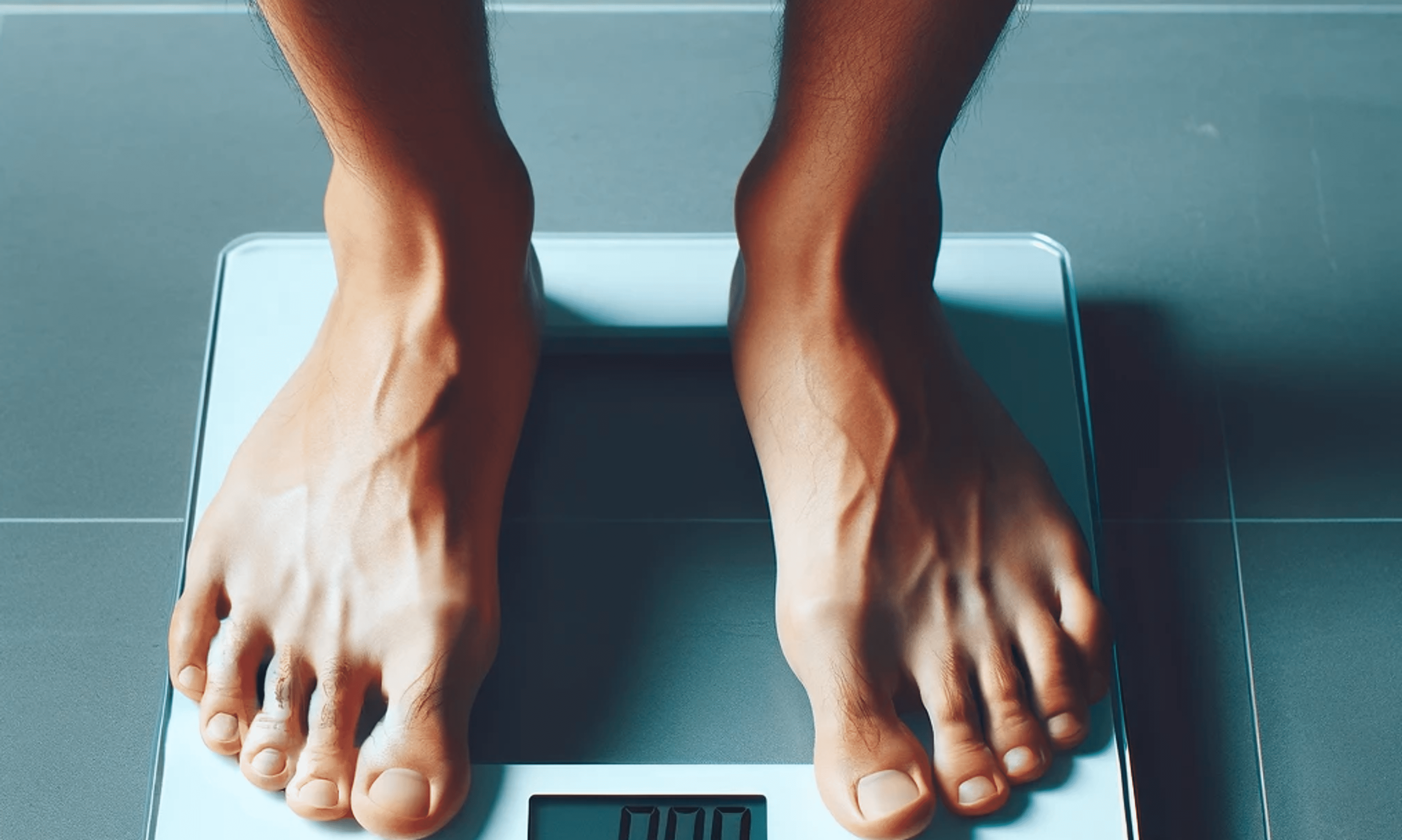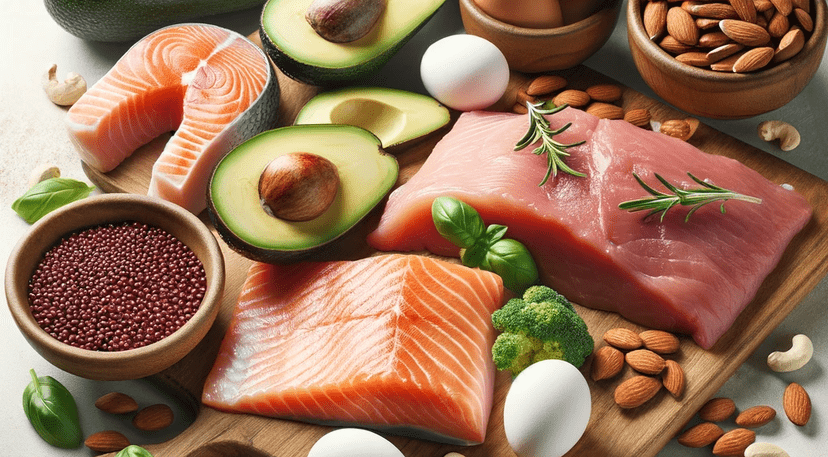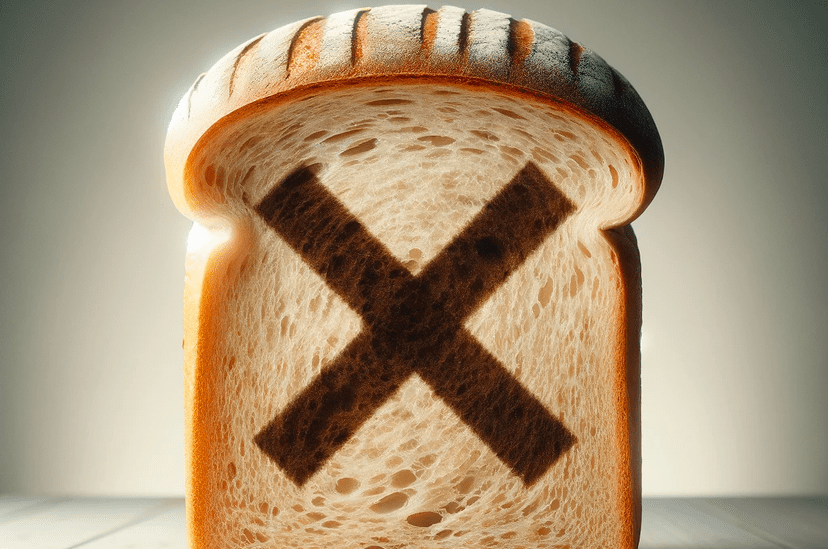When Your Body Won't Let You Lose Weight

Understanding Weight Loss Plateaus
One of the most commonly encountered challenges in the journey of weight loss is the dreaded weight loss plateau. This is a stage most individuals reach after some initial success in their weight loss journey, where they suddenly find it seemingly impossible to shift any more weight, regardless of their effort. So, why does the body resist further weight loss at a certain point? Understanding this requires delving into some key physiological and psychological factors.
In our exploration, we'll consider metabolic adaptation, the psychological elements of weight loss, and the crucial role that our diet and exercise habits play.
Exploring Metabolic Adaptation
Firstly, it's important to understand an inherent survival mechanism of our bodies called metabolic adaptation or 'adaptive thermogenesis'. This can be seen as your body’s natural protection against starvation. When you cut your calories significantly, your body defends itself by slowing down the number of calories (energy) it burns to carry out essential functions, including brain functioning, cell production, and digestion. This 'slowed metabolism' makes additional weight loss challenging and is a major contributor to weight loss plateaus.
Psychological Factors in Weight Loss
Another key contributor to weight loss plateaus are the psychological factors that can influence our eating and exercise behaviors. Our relationship with food is often complex and driven by emotions, habit, and societal influences. Initially, motivation might be high and we see results as we freely let go of unhealthy habits. However, as time goes on, the initial enthusiasm wanes, old habits creep in, stress happens, and without mindful strategies in place to cope, a plateau can be encountered.
The Role of Diet and Exercise Habits
Lastly, our diet and exercise habits play an instrumental role in our weight loss journey. You might have been exercising effectively and eating healthily, but your body, being an adaptive machine, gets used to the changes over time. This is when you stop noticing significant weight loss despite being on a diet or exercise regimen for a long time. It’s not that your efforts are not working. It’s just that your body has adapted to your current regimen and requires altering to continue progressing.
In conclusion, breaking through a weight loss plateau is often a matter of understanding the physiological and psychological dynamics at play and adjusting your strategies accordingly. A tactful blend of well-planned diet modifications, innovative exercise routines, and cognitive-behavioral tactics can help you overcome these challenges and get you closer to your weight loss goals. Remember, the journey of health and weight loss is not a linear path, but a complex journey of peaks, valleys, and indeed, plateaus.
Medical and Lifestyle Considerations
Understanding the link between medical conditions and weight loss is fundamental. A variety of medical considerations can significantly impact the body's ability to lose weight. Contrary to common perception, weight loss struggle isn't always about lack of discipline or insufficient effort. Sometimes, it's your body's way of indicating an underlying medical condition.
For instance, hypothyroidism - an underactive thyroid condition, can make it harder for you to shed those extra pounds. Similarly, Polycystic Ovary Syndrome (PCOS) in women can also lead to unexplained weight gain or difficulty losing weight. Cushing's syndrome, a rare disorder that causes an overproduction of the stress hormone cortisol, leads to weight gain predominantly in the face, neck, and abdomen.
Hence, it's highly advised to get a medical check-up if you are having difficulty losing weight despite your best efforts.
Assessing for Medical Conditions
Medical assessment is an integral part to ascertain if underlying health conditions impede weight loss. Some vital checks include:
- Thyroid function tests: This can reveal if hypothyroidism could be impacting your weight management efforts.
- Serum Insulin: Higher insulin levels can indicate insulin resistance, commonly seen in individuals with PCOS.
- 24-hour urine for free cortisol: This test can help determine whether Cushing's syndrome could be a contributing factor to your weight struggles.
Ensure to discuss the results and any concerns with your healthcare provider after these investigations.
Lifestyle Factors and Weight Loss
Lifestyle factors play a crucial role in weight management. Often, certain habits might sabotage your weight loss journey without your conscious realization. Do you find yourself frequently munching on processed snack foods or drinking high-sugar beverages? If yes, then these eating habits could be your weight loss roadblocks. Moreover, sedentary lifestyle, marked by less physical activity and prolonged sitting, is notorious for contributing to weight gain.
Good news is, adopting a balanced diet packed with whole foods, regular physical exercise, and sufficient sleep can significantly optimize weight loss efforts.
Medication and Weight Management
Unbeknownst to many, certain medications can cause weight gain or make it difficult to lose weight. These include some types of antidepressants, anti-seizure medications, diabetes medications, and high blood pressure drugs. If you've started a new medication and noticed weight changes, it's important to discuss this with your healthcare provider. It might be possible to switch to another medication that doesn't affect your weight.
In summary, while weight management can be challenging, understanding the role of medical conditions, lifestyle choices, and medications in weight loss can help optimize your efforts and bring long-lasting results. Don't hesitate to reach out for medical help when needed, and remember the journey of health is not a sprint but a marathon. Work towards long-term sustainable changes rather than quick fixes.
Overcoming Weight Loss Barriers
Embarking on a weight loss journey can sometimes be a challenging venture, especially when you seem to hit a wall and your progress stalls. This phenomenon, often referred to as a weight loss plateau, is a common experience when your body adapts to your weight loss practices and your metabolism slows. At this juncture, mere determination, trudging along the same path, simply won't suffice. Instead, a strategic shift in your diet, exercise regime, and overall lifestyle becomes necessary to rev up your metabolism and reignite your weight loss efforts.
Strategies for Breaking Through Plateaus
To dismantle these barriers to weight loss, it's important to start by understanding that our bodies respond to weight loss attempts by burning fewer calories, a defense mechanism aimed at preserving energy. Breaking through these plateaus then involves adopting techniques that trick our body into resuming weight loss.
Firstly, reassessing your calorie needs is vital. Your caloric intake should match your body weight, so as you lose weight, you should also proportionally decrease your calorie intake. This adjustment can lead to renewed progress.
Another proven technique involves revising your workout routines. Incorporating high-intensity interval training (HIIT), where short bursts of intense exercise are followed by periods of recovery, can be particularly advantageous. This form of exercise optimizes calorie burn and encourages your body to continue burning calories even after you've finished exercising.
Additionally, integrating strength training into your routines can aid in preserving and building lean muscle mass, resulting in a higher resting metabolic rate which can facilitate weight loss.
Lastly, avoiding the weekend binge is critical. Overeating during weekends can easily offset the caloric deficit created during the week, halting your weight loss progress.
Adjusting Diet for Optimal Results
The diet plays a central role in our weight loss journey. Consuming protein-rich foods is known to reduce appetite and increase feelings of satiety. A small study published in the Obesity journal in 2015 reported that those who incorporated more protein into their diet experienced greater fat mass loss and were more likely to maintain their weight loss in comparison to those whose diet was lower in protein.
Opting for whole, unprocessed foods can also remarkably influence your weight loss efforts. These foods are typically more filling and harder to overeat compared to processed foods. A study published in the Nutrition Journal in 2012 found that persons who adhered to a diet rich in whole foods lost significant body fat over a period of 12 weeks.
Refraining from drastic calorie restriction is also critical. Decreasing calorie intake too sharply may lead to muscle loss and stall metabolic rate, counteracting your weight loss efforts.
Incorporating Effective Exercise Routines
Exercise is a powerful tool to ignite your metabolism and accelerate weight loss. As previously mentioned, mixing up your exercise routine by incorporating HIIT workouts and strength training can effectively counter a weight loss plateau.
Moreover, finding activities you enjoy, such as cycling, dancing or even walking, will ensure long-term sustainability. Remember, consistency is key in maintaining long-term weight loss.
Experts recommend aiming for about 150 minutes of moderate-intensity or 75 minutes of high-intensity exercise each week. More is better, but something is definitely better than nothing. It's important to start small and gradually build up to avoid burnout or injuries from doing too much too fast.
Ultimately, overcoming weight loss barriers isn't about quick fixes or radical changes, but persistent, healthy, and sustainable adaptations to your lifestyle. A combination of revised calorie intake, an adjusted, nutrient-rich diet, varied and enjoyable exercises, along with a lot of patience and resilience is often the ticket to cutting through these barriers and progressing on your weight loss journey.
In Summary
In this blog post, we examined the phenomenon of weight loss plateaus, investigating the reasons why they occur, and providing strategies for overcoming the plateau. We highlighted the importance of understanding metabolic adaptation. This is a survival mechanism where our body conserves energy by slowing down metabolism when calorie intake is significantly reduced, making further weight loss challenging.
We further discussed the influence of psychological factors on our eating and exercise behaviors, as well as how our diet and exercise habits can cause our body to adapt, further contributing to a weight loss plateau. We underlined the importance of medically ruling out conditions which could hinder weight loss, such as hypothyroidism and PCOS, and considered the role of certain medications and lifestyle habits in our weight management efforts.
Finally, we recommended strategies for beating the plateau, such as reassessing calorie needs, revising workout routines, incorporating HIIT and strength training, adjusting diet by increasing protein intake and choosing whole foods over processed ones.
Plan of action to implement:
Start by becoming aware of the possible factors contributing to your weight loss plateau:
- Monitor your calorie intake and adjust it as you lose weight to continue seeing progress.
- Regularly change your exercise routines to prevent your body from becoming too accustomed, include high-intensity interval training (HIIT) and strength training.
- Emphasize on protein and whole foods in your diet, and ensure your calorie restriction isn’t too drastic.
- Regularly assess underlying health conditions and re-evaluate medications with your healthcare provider.
- Pay attention to your psychological relationship with food, and take steps to manage stress and behavioral eating.
- Be patient with yourself, remember that long-term and sustainable changes are key to successful weight loss.
Action steps:
1.Sit down and assess your current diet, exercise, and lifestyle habits. 2. Begin by making one small change at a time such as incorporating more whole foods into your diet or integrating HIIT into your exercise routine. 3. Monitor your progress over time and make additional adjustments as needed. 4. Talk to your healthcare provider about any potential health conditions or medications that could be impacting your weight. 5. Make sure to manage not only your physical routines, but also nurture your emotional and mental wellbeing. 6. Establish a support system of friends, family, or a fitness community to help keep you motivated and accountable. 7. Always remember that change takes time. Persistence and consistency are key. Celebrate small victories along the way and don't get discouraged if progress is slow. 8. If you find adapting to new changes challenging, consider seeking guidance from a registered dietitian or fitness professional. They can provide personalized care and strategies to address your individual needs.
![Does a 400 and 600 Calorie Diet Plan Help Weight Loss?[ANSWERED]](https://img.imageboss.me/onestep/width/828/format:auto,quality:80/assets/site/blog/does-a-400-and-600-calorie-diet-plan-help-weight-loss.png)
![How Many Calories Does 10,000 Steps Burn? [ANSWERED]](https://img.imageboss.me/onestep/width/828/format:auto,quality:80/assets/site/blog/how-many-calories-does-10000-steps-burn.png)









